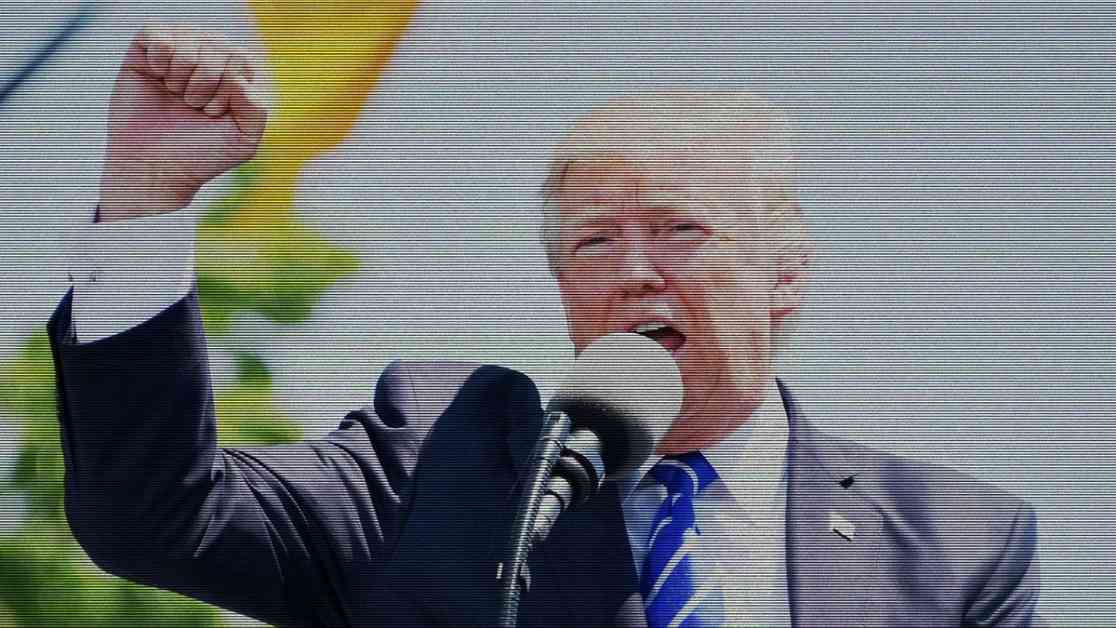Donald Trump, the former president of the United States, is making waves in the cryptocurrency world with his latest venture, “The DeFiant Ones.” This new decentralized finance (DeFi) platform is being promoted on Truth Social, a social media application that Trump himself has invested in. The project is a family-run endeavor, with Trump’s sons, Donald Trump Jr. and Eric Trump, taking the lead.
The promotion of “The DeFiant Ones” is part of Trump’s larger strategy to appeal to the crypto community and position himself as a pro-crypto candidate for the upcoming U.S. presidential election in November. In a post to his 7.5 million followers on Truth Social, Trump emphasized the platform’s potential to challenge the dominance of big banks and financial elites, stating, “It’s time we take a stand—together.”
Despite the enthusiastic promotion from the Trump family, specific details about the functionality and launch date of “The DeFiant Ones” remain scarce as of Friday. However, messages shared on the project’s Telegram group refer to it as the “Trump DeFi project” and the “future of finance,” hinting at ambitious goals for the platform.
Eric Trump, in particular, has been vocal about his excitement for the project, stating that he has “truly fallen in love with Crypto/DeFi” and teasing that they are about to “shake up the crypto world with something HUGE.” This sentiment is echoed by Donald Trump Jr., who has also been actively promoting the platform on his X account.
This is not the first time that the Trump family has dabbled in the world of cryptocurrencies. Trump-related companies have previously been involved in non-fungible token (NFT) projects and even released a line of bitcoin-themed sneakers that sold out within hours of launch. In an August disclosure, it was revealed that Trump holds between $1 million and $5 million worth of ether (ETH) and has made over $7 million in an NFT-licensing deal. Additionally, Trump has announced plans to release a fourth NFT collection in the near future.
At the Bitcoin Conference in Nashville in July, Trump made headlines by promising to establish a “strategic national bitcoin reserve” if elected as president. This commitment to embracing cryptocurrencies has solidified Trump’s position as a key player in the crypto space, drawing attention from both supporters and skeptics alike.
As the buzz around “The DeFiant Ones” continues to grow, the crypto community eagerly awaits more details about the platform and its potential impact on the financial landscape. With the backing of the Trump family and their significant influence, the project is poised to make a significant splash in the world of decentralized finance.
Challenges and Opportunities in the DeFi Space
The rise of decentralized finance (DeFi) has revolutionized the way we think about traditional financial systems. By leveraging blockchain technology, DeFi platforms offer users greater transparency, security, and control over their assets. However, this innovative approach to finance also presents unique challenges and opportunities for regulators, policymakers, and investors.
One of the key challenges facing the DeFi space is the issue of regulatory compliance. Unlike centralized financial institutions, DeFi platforms operate in a decentralized manner, making it difficult for regulators to enforce traditional financial laws and regulations. This lack of oversight has led to concerns about money laundering, fraud, and other illicit activities taking place on DeFi platforms.
On the other hand, the decentralized nature of DeFi also presents opportunities for financial inclusion and innovation. By removing intermediaries and barriers to entry, DeFi platforms empower individuals to access financial services that were previously out of reach. This democratization of finance has the potential to revolutionize the way we think about money, payments, and investments.
As the DeFi space continues to evolve and expand, it is crucial for stakeholders to work together to address the challenges and capitalize on the opportunities presented by this burgeoning industry. By fostering collaboration between regulators, developers, and users, we can create a more secure, transparent, and inclusive financial ecosystem that benefits everyone.
The Future of Crypto and Politics
The intersection of cryptocurrencies and politics is a topic that has garnered increasing attention in recent years. As digital assets become more mainstream and influential, politicians around the world are grappling with how to regulate and leverage this new form of finance.
In the United States, the debate over cryptocurrency regulation has become a hot-button issue, with lawmakers proposing a range of policies to address concerns about money laundering, tax evasion, and consumer protection. At the same time, politicians like Donald Trump are embracing cryptocurrencies as a way to appeal to a growing segment of the population that is interested in digital assets.
The emergence of projects like “The DeFiant Ones” highlights the potential for cryptocurrencies to play a significant role in shaping the future of politics. By leveraging blockchain technology and decentralized finance, politicians can engage with supporters, raise funds, and promote their agendas in new and innovative ways.
As the 2024 U.S. presidential election approaches, it will be interesting to see how candidates from both parties incorporate cryptocurrencies into their campaigns. Whether it’s through fundraising efforts, policy proposals, or social media engagement, digital assets are likely to play a prominent role in shaping the political landscape in the years to come.
In conclusion, the promotion of “The DeFiant Ones” by Donald Trump and his family underscores the growing influence of cryptocurrencies in the political sphere. By embracing decentralized finance and blockchain technology, politicians can connect with supporters, promote their platforms, and drive innovation in new and exciting ways. As the crypto space continues to evolve, it is clear that digital assets will play an increasingly important role in shaping the future of politics and finance.

















